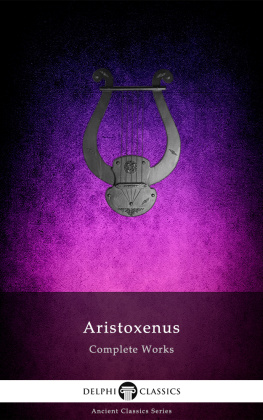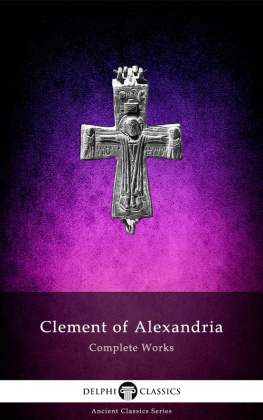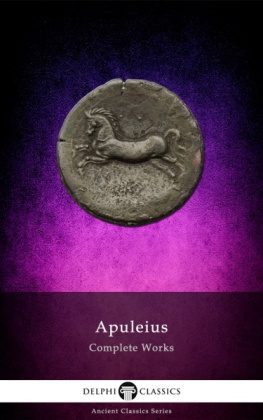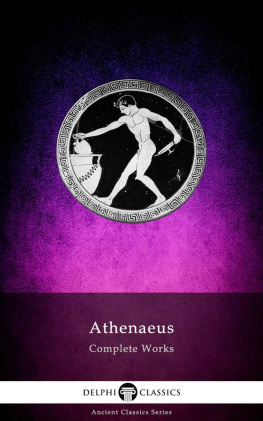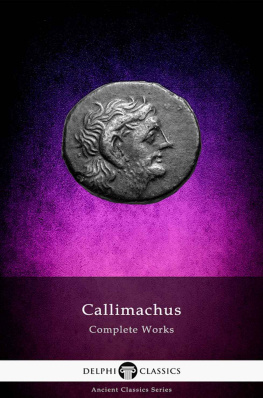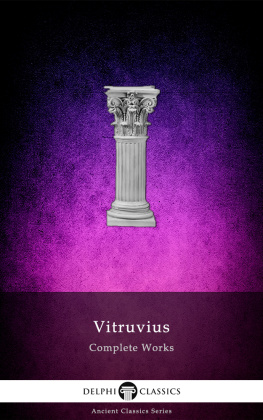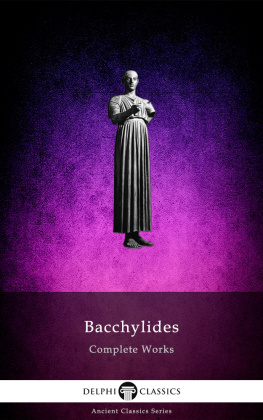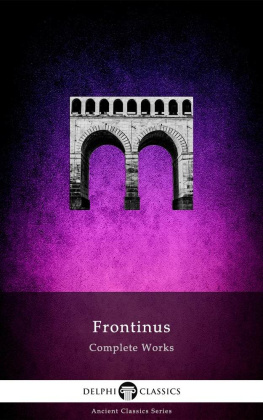
The Complete Works of
ONASANDER
(fl. 1st century AD)

Contents

Delphi Classics 2019
Version 1

Browse Ancient Classics







The Complete Works of
ONASANDER

By Delphi Classics, 2019
COPYRIGHT
Complete Works of Onasander
First published in the United Kingdom in 2019 by Delphi Classics.
Delphi Classics, 2019.
All rights reserved. No part of this publication may be reproduced, stored in a retrieval system, or transmitted, in any form or by any means, without the prior permission in writing of the publisher, nor be otherwise circulated in any form other than that in which it is published.
ISBN: 978 1 91348 705 8
Delphi Classics
is an imprint of
Delphi Publishing Ltd
Hastings, East Sussex
United Kingdom
Contact: sales@delphiclassics.com

www.delphiclassics.com
The Translation

Roman soldiers on the cast of Trajans Column, Victoria and Albert Museum, London
The General

Translated by The Illinois Greek Club for the Loeb Classical Library, 1923
Onasander was a Platonic philosopher that flourished in the first century AD. We know nothing of his life, except that he was the author of a commentary on Platos Republic , now lost, though we still possess his Strategikos (The General), a short but comprehensive work on the duties of a general. The text is dedicated to Quintus Veranius Nepos, who was consul in AD 49 and legate of Britain. This treatise would become the chief authority for the military writings of the emperors Maurice, Leo VI, and Maurice of Saxony, who consulted it in a French translation and expressed a high opinion of the work.
Recognised as a classic in Antiquity, it is to some extent a useful handbook even today. The work opens with a prooemium (Preface), followed by 42 chapters, some of which are very short. It deals in plain style with the sort of morals and social and military qualities and attitudes expected of a virtuous and successful general. Onasander also reflects upon a generals optimum choice of staff, his attitude to war and the religious duties that should be carried out by a general. The treatise also analyses military formations, the challenges of difficult terrains, the construction of camps and battle formations, while finally concluding with the advised conduct of a leader after achieving a victory.

Solidus of Maurice (539-602), who was Byzantine Emperor from 582 to 602. A prominent general, Maurice fought with success against the Sasanian Empire. He is known to have made use of Onasanders The General.
CONTENTS

A re-enactment of the testudo formation of Roman warfare, as described by Onasander in The General.

A depiction of the testudo on Trajans Column, a triumphal column in Rome, commemorating the Emperor Trajans victory in the Dacian Wars.
PROOEMIUM
[1] It is fitting, I believe, to dedicate monographs on horsemanship, or hunting, or fishing, or farming, to men who are devoted to such pursuits, but a treatise on military science, Quintus Veranius, should be dedicated to Romans, and especially to those of the Romans who have attained senatorial dignity, and who through the wisdom of Augustus Caesar have been raised to the power of consul or general, both by reason of their military training (in which they have had no brief experience) and because of the distinction of their ancestors. [2] I have dedicated this treatise primarily to them, not as to men unskilled in generalship, but with especial confidence in this fact, that the ignorant soul is unaware even of that in which another is successful, but knowledge bears additional witness to that which is well done. [3] For this reason, if what I have composed would seem to have been already devised by many others, even then I should be pleased, because I have not only compiled precepts of generalship, but have also endeavoured to get at the art of the general and the wisdom that inheres in the precepts. I should be fortunate if I should be considered capable, before such men, of making a summary sketch of what the Romans have already accomplished by their mighty deeds.
[4] It remains for me to say with good courage of my work, that it will be a school for good generals, and an object of delight for retired commanders in these times of holy peace; and we shall know, if nothing else, for what reason some generals have stumbled and fallen, but others have prospered and been raised to fame; and we shall consider above all the valour of the Romans, how that neither king, nor state, nor nation has held a greater position of leadership, nor even equalled them in the establishment of a dominion, unshaken through so many years. [5] For it is not by chance, as it seems to me, that they have overrun the boundaries of Italy and extended their sway to the limits of the earth, but by deeds of generalship. For it is necessary to pray to Fortune to do its share, but not to consider that Fortune has entire control. [6] Stupid are those who make disasters chargeable to Fortune alone, rather than to the negligence of commanders, as well as those who attribute successes to her, and not to the skill of the generals. It is neither reasonable simply to dismiss without punishment a general who has met with complete disaster, on the ground that Fortune is responsible for all things, nor is it just to leave the successful general so far without recognition that gratitude for everything is offered to Fortune.
Next page

